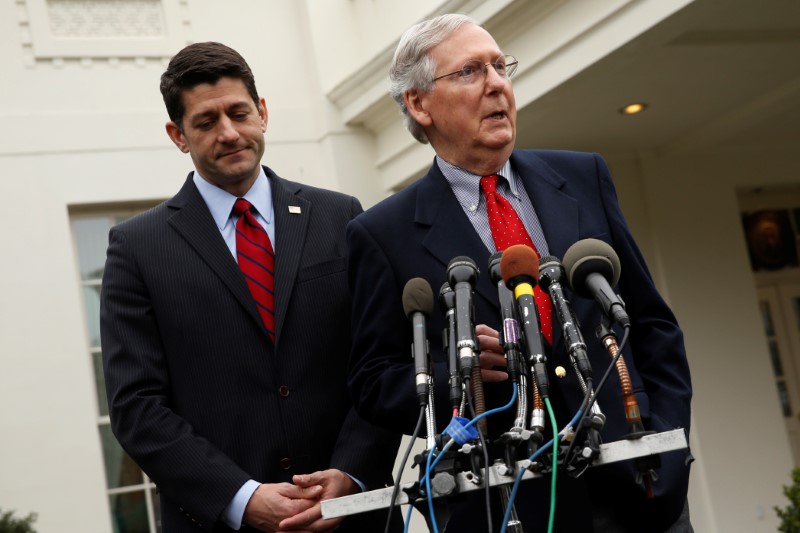By Patricia Zengerle
WASHINGTON (Reuters) - U.S. President Donald Trump's proposal to slash funding for the State Department and foreign aid faces stiff opposition in Congress, which must pass any spending plan, not just from Democrats, but also from many of his fellow Republicans.
Trump administration officials said on Monday they sought to increase Pentagon spending and offset that with sharp cuts in other areas. One official familiar with discussions about the State Department budget said the agency could see spending cut by as much as 30 percent.
Other officials have speculated that the total cut in the combined budgets of the State Department and the Agency for International Development could be as great as 37 percent.
"I am very concerned by reports of deep cuts that could damage efforts to combat terrorism, save lives and create opportunities for American workers," said U.S. Representative Ed Royce, the Republican chairman of the House of Representatives Foreign Affairs Committee.
Royce said his panel would "thoroughly review" the budget request when Trump sends it to Congress.
The United States spends just over $50 billion annually on the State Department and foreign assistance, compared with $600 billion or more each year on the Pentagon.
But the administration's proposals are just the start of negotiations on a federal budget that must be passed by Congress. Several leading lawmakers said diplomacy and foreign aid, often called "soft power," ensure national security in tandem with military forces and weapons.Senator Bob Corker, chairman of the Senate Foreign Relations Committee, said he discussed the issue with Trump's secretary of state, Rex Tillerson, at a meeting on Tuesday and planned to discuss it in greater detail after the White House submits its budget.
Asked on Tuesday if the Senate would pass a budget that cuts the State Department budget by a third, Senate Majority Leader Mitch McConnell responded, "probably not."
'DEAD ON ARRIVAL'
Senator Lindsey Graham, the Republican chairman of the Senate subcommittee responsible for the State and Foreign Aid budgets, said Trump's idea would be "dead on arrival" in Congress.
"It would be a disaster. If you take soft power off the table, then you're never going to win the war. What's most disturbing about the cut in the State Department's budget, it shows a lack of understanding of what it takes to win the war," he said on MSNBC.
Senate Armed Services Committee Chairman John McCain said it was shortsighted to cut diplomacy and aid, even though he wants $640 billion in defense spending, far more than the $604 billion proposed by the White House.
"I'm very much opposed," McCain told reporters when asked for his view of proposed State Department and aid cuts. "So many of those programs are very important. They're a popular target, but they're very important."
Senator Marco Rubio, a member of both the Senate foreign relations and intelligence committees, noted that foreign aid is a tiny portion of the U.S. budget.
"Foreign aid is not charity. We must make sure it is well spent, but it is less than 1% of budget & critical to our national security," he said on Twitter.
The top Democrat on the Senate Foreign Relations Committee, Ben Cardin, said he thought enough members of Congress would oppose such a plan to kill it, even though Republicans have majorities in both houses of Congress and a budget bill would need only a simple majority to pass.

Trump was due to set out proposals for his broad agenda in a speech to Congress at 9 p.m. on Tuesday (0200 GMT Wednesday).